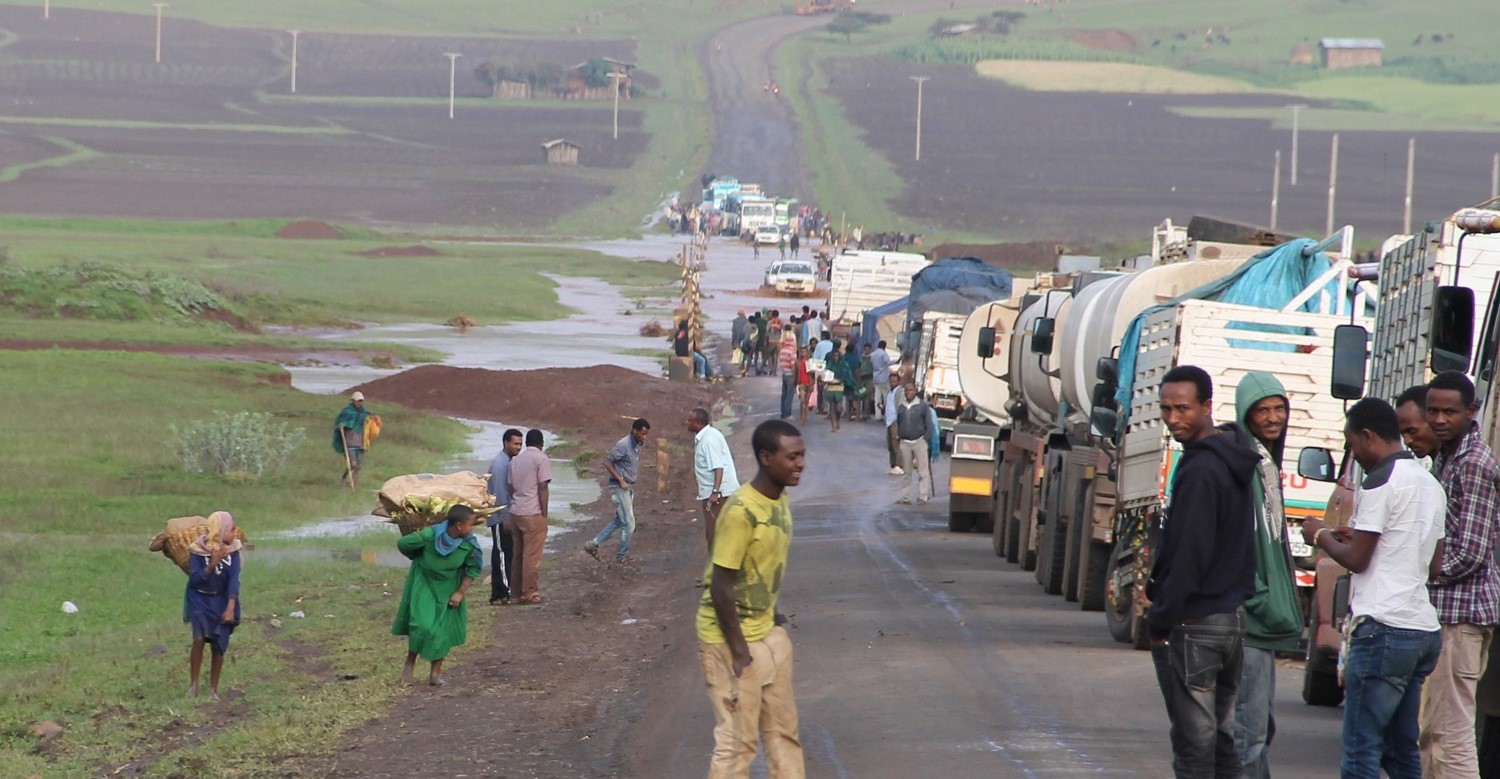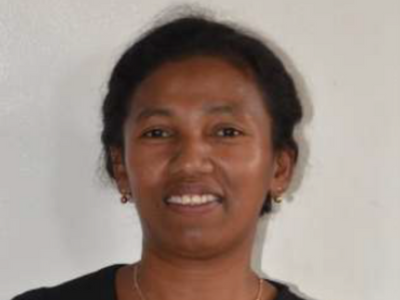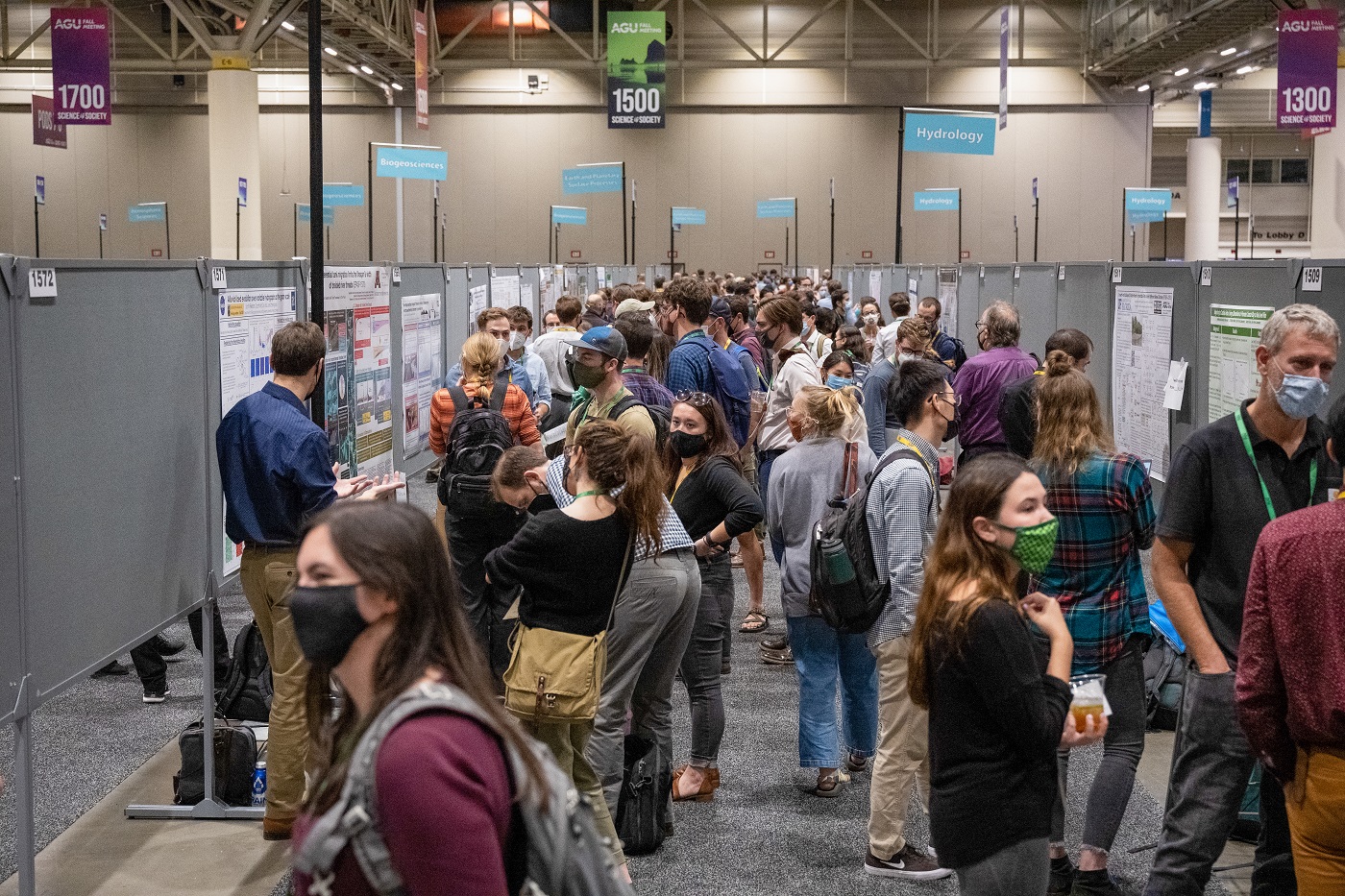
Chapman
About the meeting
The Program Committee of the Chapman on Climate and Health in Africa has been working to create the most inclusive meeting that brings together scientists and policy makers from across Africa and North America.
Due to health and safety concerns, restrictions on international travel and visa restrictions for entry into the United States, we have made the decision to move the dates of the onsite conference in Washington, DC to 12-15 June 2023. We hope that this change will enable researchers from around the world to participate in person in this important conference.
The Program Committee continues its work on the conference and will provide updates, including opportunities for the community to get together online in advance of the meeting, as information becomes available. New abstract submission deadlines and other timing will also be announced in the near future. Abstract submissions are now closed.
We look forward to coming together to connect as a community in June 2023.
Questions? Please email if you have questions about the conference.
The Scientific Program is live
View
Who should attend

Meeting goals

Abstract Themes
The Conference aims at taking advantage of significant advances in the modeling of the climate system and forecasting at various time scales to improve climate services in health. The scientific program will focus on how climate affects health and the achievements and needs for actionable climate-informed forecasts of infection disease and actionable climate-informed forecasts of heat related illnesses.


Scientific Program
Chapman Conference Format Overview
Each theme will feature two oral sessions, a poster session, and a panel. Posters are strongly encouraged to foster discussions that lead to recommendations towards advancing health early warning systems. The panel and selected oral presentations will feature invited speakers. Contributed abstracts are welcomed for the poster sessions on all three themes. A small number of submitted abstracts will be selected for oral presentations, in consultation with the contributing authors.
-
1
How Climate Impacts Health. Our current understanding of how climate affects health is presented in this session to provide a foundation for the subsequent sessions discussing actionable climate-informed forecasts. All aspects of the climate-health connection are covered, including both disease and stressors such as heat and humidity.
-
2
Actionable climate-informed forecasts of infectious disease: achievements and needs. Incorporating climate drivers explicitly in infectious disease models provides an important avenue for forecasting incidence and disease risk from sub-seasonal to seasonal to interannual time scales. This is the case for vector-borne, water-borne, and some directly transmitted airborne infections. Presentations will address the current achievements and challenges of producing such climate-informed forecasts for the African continent, for different classes of infectious diseases and at different temporal and spatial scales. Different modeling approaches and their advantages/disadvantages will be considered, from statistical to process-based, to forecasting ensembles. Climate information can be included in disease models based on observations or forecasts.
-
3
Actionable climate-informed forecasts of heat related illnesses: achievements and needs. Extreme heat in Africa remains a significant threat to human health. Greater action is required to support preparedness and adaptation in order to mitigate its impacts across communities as well as health systems. This session aims to provide a constructive and informative dialogue to highlight scientific achievements and discuss the continued need to shape and inform scientific efforts, which support and improve the health sector services with regards to extreme heat.

Abstract Submission Policies
Abstract submissions are closed. The deadline to submit an abstract was 1 March 2023. You are not required to be an AGU member to submit an abstract. There is no fee for submissions.
Abstracts must focus on scientific results or their application. The Program Committee may decline abstracts with other focuses.
By submitting an abstract, you are obligated to give a presentation in the designated manner assigned by the Program Committee. Your submission also grants AGU permission to publish the abstract.
You cannot request oral presentations, although you may request a poster presentation.

Abstract Submission Guidelines
Abstracts must meet the following guidelines to be considered for the Chapman Conference.
-
1
Your abstract title should be no more than 300 characters and the abstract text must be less than 2000 characters. The character limit includes punctuation, but not spacing.
-
2
In lieu of adding the names of individual team members, you may reference a research team in the 'Title of Team' field during the submission process.
-
3
You may add one table or image to your submission. If you would like to include multiple images, you must combine the images and save them as one file. We prefer image files be .jpg, however, .png, and .gif are also supported file types.
-
4
Submissions can be submitted and edited at any time up until the abstract submission deadline.

Deliverables
The deliverables include Conference Proceedings, a meeting report for a nonscientific audience, a call for what the community can do, and a white paper. We anticipate concrete recommendations on next steps for advancing early warning systems.

Oral Presenter Guidelines
Please bring a copy of your presentation on a USB drive. All presentations will be uploaded to the podium laptop. The podium laptop will be a PC. Presentations should be formatted to 16:9 if possible.
- Be considerate of other speakers and the audience by staying within your allotted time. The individual presentation time includes 3-5 minutes for discussion and changeover to the next speaker. Session chairs will hold you to the allotted time, which is essential to ensure adequate time for questions and discussion.
- Please discuss the material as reported in your submitted and approved abstract.
- Prepare your presentation in advance so that your ideas are logically organized, and your points are clear.
- Take time to rehearse your presentation. If your presentation runs longer than the allotted time, eliminate the least essential material and rehearse again.
- Give an opening statement to acquaint the audience with the nature and purpose of the study. Speak slowly and clearly. Word choice should be simple: use active words and short sentences.

Poster Presenter Guidelines
Each presenter will have a poster space of 45” x 45” (3.75 feet by 3.75 feet). Each presenter will share an 8’W x 4’H posterboard. Posters will only be displayed during the day of the designated session.
The presentation must cover the material as cited in the abstract.
- Place the title of your paper and your paper number prominently at the top of the poster board to allow viewers to identify your paper. Indicate 1) the abstract’s presentation number, 2) title, and 3) authors’ names.
- Highlight the authors’ names, e-mails, and address information in case the viewer is interested in contacting you for more information.
- Prepare all diagrams or charts neatly and legibly beforehand in a size sufficient to be read at a distance of 2 meters. Paragraph and figure caption text should be AT LEAST 24-point font (0.9 cm height) and headers AT LEAST 36 point font (1.2 cm height). Use creativity by using different font sizes and styles, perhaps even color.
- Use different colors and textures/symbols for each line or bar contained in your graph or chart. A serif font (e.g., Times) is often easier for reading main text, and a non-serif font (e.g., Arial or Helvetica) for headers and figure labels.
- Organize the paper on the poster board so it is clear, orderly, and self-explanatory. You have complete freedom in displaying your information in figures, tables, text, photographs, etc.
- Use squares, rectangles, circles, etc., to group similar ideas. Avoid cluttering your poster with too much text. Label different elements as I, II, III; or 1, 2, 3; or A, B, C, making it easier for a viewer to follow your display.
- Include the background of your research followed by results and conclusions. A successful poster presentation depends on how well you convey information to an interested audience.

Upload an ePoster (Optional)
Note: These instructions are written for PowerPoint, but are applicable to any other software you may wish to use. If you use PowerPoint, please use PowerPoint 2007 or newer.
- Number of pages (slides): one (1)
- Max file size accepted: 10240KB (1024KB = 1MB)
- Set the dimensions of your poster to 43.6" (110.7 cm) width x 24.5" (62.2 cm) height in landscape orientation, or start with this template.
To set your slide dimensions:
- Select the "Design" tab in PowerPoint
- Click "Slide Size" and select "Custom Slide Size"
- Set the width and height as outlined above
- Fill in the abstract title, author names, and institutional affiliations of the authors at the top of the poster.
- Fill in content as appropriate.
- Before submitting, save your poster as a PDF file. All recent versions of PowerPoint and most other software applications allow you to save your poster as a PDF file from the "File > Save as" menu.
Recording Your Presentation (Optional)
You may also upload an optional recording along with your ePoster. The size limit for your video is 204800KB (1024KB = 1MB).
- Each presentation should be 2-10 minutes long.
- Presentations should be either a shoulders up view of the person presenting or a video recording with your camera blocked out (to create a back screen with audio only).
- This short video should detail enough that the audience gets a good idea of what your poster is about, including a brief introduction with an explanation of various sections of your poster. Within our ePoster editor you can select sections to highlight and zoom in as you speak that can be synced to the times in your video.
- Video larger than 200MB? Click HERE to view the recommended instructions for compressing your video.
Registration
The registration fee includes access to the scientific program, a Monday evening opening reception, daily refreshment breaks, and daily lunch. Registration will only be open accepted presenters. The registration deadline is 11 May 2023.

Rates
Professionals: $350.00 USD
Students: $250.00 USD
Low- and lower-middle income country residents (as defined by the World Bank): $0.00 USD
Cancellation Policy
If you must cancel your registration, you must email AGU with written notification. Registration cancellations received by 11 May 2023 will receive a full refund. Cancellations received between 12 and 18 May 2023 and a $50 processing fee deducted. No refunds will be issued after 18 May 2023.

Churchill Hotel
1914 Connecticut Avenue NW
Washington, DC 20009
Rates: $169.00 per night (single/double occupancy), plus taxes.
Cancellation policy: Individuals reservations must be cancelled 72 hours prior to arrival to avoid a penalty of one (1) night room plus tax.
Check-in: 3:00 PM
Check-out: 12:00 PM


By Air
There are three major airports in the Washington, D.C. region (in order of distance from the Washington Hilton): Ronald Reagan Washington National Airport (airport code: DCA), Washington Dulles International Airport (airport code: IAD) and Baltimore/Washington International Thurgood Marshall Airport (airport code: BWI). All three airports offer multiple U.S. and international flights daily.
Reagan National Airport is just a 10-minute drive from the city line. The airport is accessible from its own Metro stop on the Blue and Yellow lines. A taxi ride into downtown D.C. will cost about $15-$20. Uber, Lyft and Via offer transportation services to and from Reagan National Airport.
Dulles Airport is located 26 miles from D.C. in suburban Virginia. The airport has a dedicated access road that makes getting into the city efficient via car, taxi or airport shuttle. Washington Flyer taxi cabs exclusively service Dulles Airport. A taxi ride into D.C. will cost about $65-$75. Public transportation options are also available via the Silver Line Express Bus to the Wiehle-Reston East Metrorail Station or via Metrobus 5A to Metrorail stops in Rosslyn, VA and L’Enfant Plaza in Washington, D.C. Uber, Lyft, and Via offer transportation services to and from Dulles Airport.
BWI Airport is accessible via Amtrak routes that drop off at D.C.’s Union Station. A reserved seat on Amtrak will cost $15-$30. MARC commuter rail is also available to Union Station on weekdays with limited weekend service, via the Penn Line; tickets are $7 each way. Visit the BWI Airport ground transportation page for more information.
By Bus
By Car
By Train
International Attendees
IMPORTANT: Please read in advance of your arrival in Washington, D.C. regarding information about embassies, travel, and passports. Never been to Washington, D.C.? Learn more about how to enjoy your time in our nation’s capital.
Letters of Invitation
If you are a registered scientist attending the meeting, please contact us to request a letter. Please note that we cannot provide letters of invitation to spouses, children, or others who will be accompanying you on the trip but not attending the Chapman Conference as registered attendees.
Visas
U.S. Government Entry Requirement for Visa Waiver Program (VWP) Countries
Effective 20 January 2011, citizens of Visa Waiver countries will be unable to enter the United States without Electronic System for Travel Authorization (ESTA) approval from the U.S. Government. VWP travelers who have not obtained approval through ESTA will be denied boarding on any air carrier destined for the United States. For more information, visit the VWP program website.
It is strongly recommended that international participants apply for visas at least 3 months prior to the Chapman Conference. Note: Some consulates may have delays in scheduling visa interviews; therefore, applicants should first contact the consulate to determine the wait time for an interview. Additional information on business visas can be found at the DOS Business Visa Center website and at the IVO website.
Also, if you are experiencing significant visa delays, please complete the visa survey, and a representative will provide feedback.
The U.S. Department of State maintains a comprehensive website containing information about traveling to the United States.
The National Academies website has additional information about visa-related issues and travel information for U.S. citizens and non-U.S. citizens.
Weather
Climate and Health for Africa Chapman Travel Grants
The Chapman Conference conveners would like to thank the Bill & Melinda Gates Foundation, NOAA, and the National Science Foundation for their support. Students, early career scientists, those from low-middle income countries, and those whose research focuses on intersection of climate and health are encouraged to apply.
Deadline: 1 March 2023
The travel grant submission period is closed.

Past Events and Recordings

Webinar: Dissemination of Climate and Health Alerts in Madagascar: Facts and Challenges
Climate change has adverse effects on human health and is becoming an important determinant of health. On one hand, its consequences such as heat waves, drought, flooding, violent and frequent cyclones or the degradation of the ecosystem influence the occurrence of many climate sensitive diseases. On the other hand, climate variability plays an important role in the resurgence or emergence of these diseases. The Ministry of Public Health, with its partners, produces the climate-health bulletin to inform stakeholders and the population on the diseases at risk of resurgence, taking into account the climatic and meteorological parameters and the behavior to adopt to face these diseases. This initiative is part of the early warning system to ensure the adaptation of the health sector to climate change.
Date recorded: 1 December 2022
Moderator: Wassila Thiaw, NOAA
Panelists:
- Production and sharing of meteorological and climate inofmration and parameters relevant to health: Anzela Mamiarisoa RAMAROSANDRATANA, Head of Service on Climate Variability, Direction Générale de la Météorologie, Madagascar
- Development of the climate-health bulletin: Haingotiana RAKOTO RAMAMBASON, Department of Health Promotion, Ministry of Public Health, Madagascar
- Distribution of the climate-health bulletin via hotline 321: Nathalie RANAIVO-HARISOA, Country Director, Viamo Madagascar
- Technical and financial support for priority sectors, in particular health in the context of climate change: Rolland Maminiaina RANDRIANARIVELO, Deutsche Gesellschaft fur Internationale Zusammenarbeit (GIZ) GmbH
- Early warning challenges: Norohasina RAKOTOARISON, Department of Health Promotion, Ministry of Public Health, Madagascar
Presenters & Bios: Climate and Health Alerts

Anzela Mamiarisoa RAMAROSANDRATANA

Haingotiana Rakoto Ramambason

Rolland Maminiaina RANDRIANARIVELO

Norohasina RAKOTOARISON
Webinar: Heat and Maternal and Child Health
Description: Pregnant women, babies and young children are among the groups most vulnerable to heat stress. High temperatures and heatwaves increase the risk of preterm birth and low birthweight babies, with a possible increase in stillbirths. Infants and children as also highly vulnerable to heat-related morbidity and mortality. Both physiological, clinical and social factors increase this vulnerability. The webinar will explore the heat vulnerabilities of maternal and child health and how these can be effectively addressed when developing and implementing heatwave early warning and response systems, focusing on African needs and opportunities.
Moderator: Prof. Kristie Ebi, University of Washington
Panels:
1) Overview of the epidemiology of Heat and Child and Maternal Health, Dr. Sari Kovats, London School of Hygiene and Tropical Medicine
2) African Perspective on Heat Waves and Early Warning Systems, Dr. Chris Jack, University of Cape Town
3) The South Africa National Heat Action Plan Guidelines, Dr. Caradee Wright, South Africa Medical Research Council
4) Training and Engagement in NIH-Funded HE2AT Centre, Dr. Chris Boyer, University of Washington and ECR
5) Enabling and Sustaining Heat - Health Early Warning Systems through Multi-sector Engagements, Dr. Ousmane Ndiaye, ANACIM, Senegal
Presenters & Bios: Heat and Maternal and Child Health

Dr. Kris Ebi

Dr. Sari Kovats

Dr. Caradee Wright

Dr. Ousmane Ndiaye
Webinar: Global Climate-Based Chikungunya Risk Mapping and Early Actions
Description: Chikungunya is a viral disease transmitted to humans by infected mosquitoes. Symptoms vary and can include fever, muscle or joint pain, and rash. Death from chikungunya is rare. The global chikungunya monitoring and forecasting (CHIKRisk) provides a platform for mapping occurrences of Chikungunya worldwide. This 60-minute-long panel discussed Chikungunya vectors and ecology, global surveillance of chikungunya outbreaks, modeling framework and forecasting of chikungunya risk, dissemination, application, and preventive measures. Each panelist gave a brief 5-minute introductory remark and a Q&A session followed.
Date recorded: 17 August 2022
Moderator: Wassila Thiaw, National Oceanic and Atmospheric Administration
Presenters & Bios: Chikungunya Risk Mapping

Dr. Kenneth Linthicum
US Department of Agriculture

Dr. Linda MacKinnon, MPH, PMP
CEO, International Society for Infectious Diseases (ISID)

Dr. Thomas Yuill
University of Wisconsin, Madison

Dr. Mubarak Mustafa Elkarsany, M.D.
University of Karary, Sudan

Dr. Assaf Anyamba
Oak Ridge National Laboratory

Dr. Kevin M. Taylor, MD, MTM&H
Lieutenant Colonel, Medical Corps, US Army
Chapman Conveners
Wassila Thiaw
NOAA Climate Prediction Center, United States
Nafissaou Oumar Toure
Universite Cheikh Anta Diop, Senegal
Susan Rumisha
The Malaria Atlas Project, Australia
Benjamin Zaitchik
Johns Hopkins University, USA




